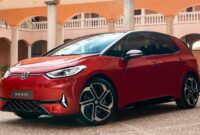The Mercedes-Benz and Rivian partnership has ended for now. The two automakers announced today that they are dropping plans to build electric vans together in Europe. The pair originally signed a Memorandum of Understanding in September that would have resulted in a van built for each brand.
According to Rivian CEO RJ Scaringe, the automaker believes it is best to focus on its current consumer and commercial business operations. It represents the “most attractive short-term opportunity to maximize value” for the company.

84 Photo
Mathias Geisen, head of Mercedes-Benz Vans, said he understood and respected Rivian’s decision. However, the pause will not put Mercedes’ plans on hold. The pace of the company’s electrification strategy “remains unchanged,” according to Geisen, with the automaker still committed to its new EV factory in Poland and its first dedicated electric van plant.
While the two have called off the partnership, the door isn’t completely closed between the two. “Exploring strategic opportunities with the team at Rivian in the future remains an option,” added Geisen.
The two hope the partnership will help reduce the cost of electric vans for commercial vehicle owners, sharing the investment and costs between the two. The initial plans called for a dedicated factory to manufacture vans based on Mercedes’ VAN.EA platform and another driving Rivian’s second-generation Rivian Light Van (RLV) architecture.
This isn’t the first Rivian partnership to end without producing any vehicles. Ford and Rivian split late last year, ending plans for the two to build vehicles together. Ford then sold eight million shares of Rivian in mid-2022, causing Rivian shares to fall as other entities also offloaded between 13 million and 15 million shares.
Even without a partnership, Rivian is not without a van. This automaker produces an Electric Delivery Van for Amazon under the apt name more than 1,000 fleets deliver packages in over 100 US cities today. Amazon ordered 100,000 vans from the company, intending to deliver 10,000 by the end of 2022, which Rivian may not be able to achieve. Rivian also manufactures the R1T truck and the R1S SUV.




